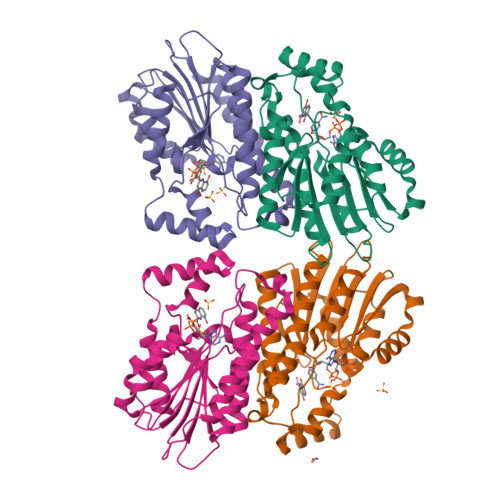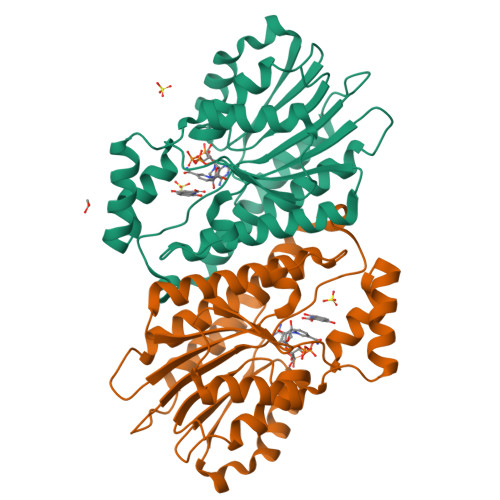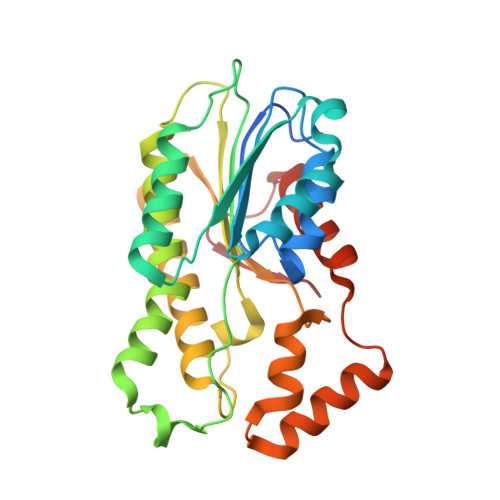Tetrahydrobiopterin Biosynthesis as a Potential Target of the Kynurenine Pathway Metabolite Xanthurenic Acid.
Haruki, H., Hovius, R., Pedersen, M.G., Johnsson, K.(2016) J Biological Chem 291: 652-657
- PubMed: 26565027
- DOI: https://doi.org/10.1074/jbc.C115.680488
- Primary Citation of Related Structures:
4Z3K - PubMed Abstract:
Tryptophan metabolites in the kynurenine pathway are up-regulated by pro-inflammatory cytokines or glucocorticoids, and are linked to anti-inflammatory and immunosuppressive activities. In addition, they are up-regulated in pathologies such as cancer, autoimmune diseases, and psychiatric disorders. The molecular mechanisms of how kynurenine pathway metabolites cause these effects are incompletely understood. On the other hand, pro-inflammatory cytokines also up-regulate the amounts of tetrahydrobiopterin (BH4), an enzyme cofactor essential for the synthesis of several neurotransmitter and nitric oxide species. Here we show that xanthurenic acid is a potent inhibitor of sepiapterin reductase (SPR), the final enzyme in de novo BH4 synthesis. The crystal structure of xanthurenic acid bound to the active site of SPR reveals why among all kynurenine pathway metabolites xanthurenic acid is the most potent SPR inhibitor. Our findings suggest that increased xanthurenic acid levels resulting from up-regulation of the kynurenine pathway could attenuate BH4 biosynthesis and BH4-dependent enzymatic reactions, linking two major metabolic pathways known to be highly up-regulated in inflammation.
Organizational Affiliation:
From the Institute of Chemical Sciences and Engineering, Institute of Bioengineering, National Centre of Competence in Research (NCCR) in Chemical Biology, École Polytechnique Fédérale de Lausanne (EPFL), 1015 Lausanne, Switzerland.























